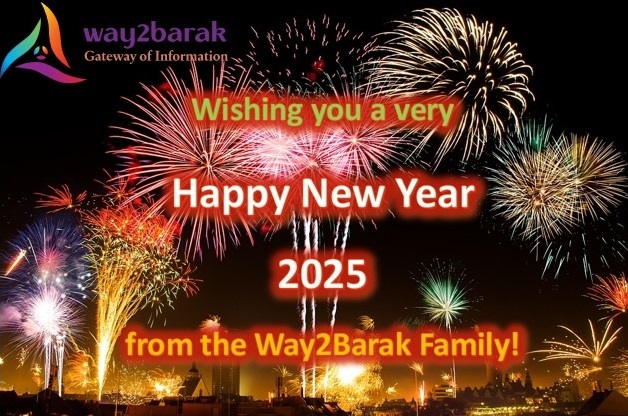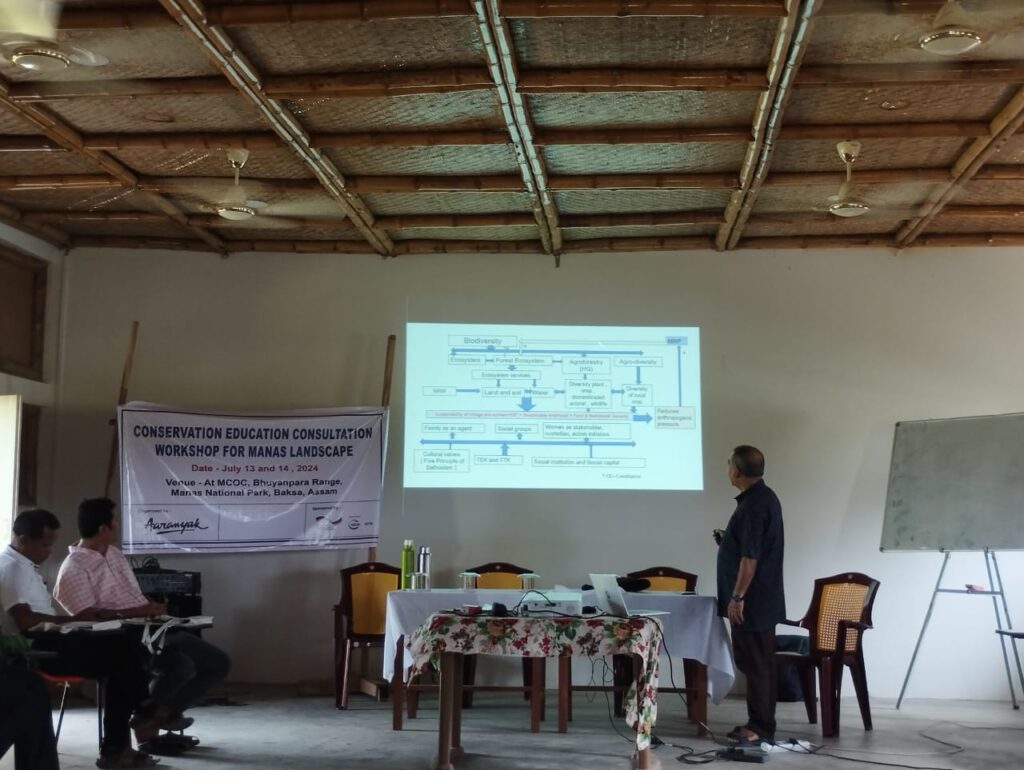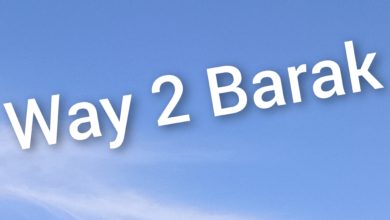India & World UpdatesHappeningsBreaking News
Conservation education consultation workshop held for Manas Landscape

way2barak, July 19 :Aaranyak organised a two-day consultation workshop for planning Conservation Education for Manas Landscape at its Manas Conservation and Outreach Centre (MCOC) situated near Manas National Park.

During the workshop held from July 13-14, conservation educationists, education practitioner, natural resource management specialists, habitat conservation experts, culture and folklore experts and social scientists from Bodoland Territorial Region (BTR) actively participated and brainstormed on the Bodo traditional knowledge system and its association with nature.
Aaranyak says, the organisation is committed towards conservation of biodiversity, ecosystem and supporting the indigenous communities through Alternative Sustainable Livelihood activities, education and awareness programmes residing in the Manas Landscape. The initiative is supported by IUCN-KfW.
Notable experts from the area Dr Rustam Brahma from Bodoland University, Dr Gaurisankar Narzary from Kokrajhar Government College, Mr Dilip Narzary, a cultural activist and accredited folk dance trainer of Bodo Cultural Society and Chandra Kanta Basumatary, Former President, Manas Maozigendri Ecotourism Society (MMES)Former Brand Ambassador, Forest & Environment Department, Assam attended the workshop.
The programme is an initiative of the Participatory Natural Resource Management (PNRM) Programme under the Tiger Research and Conservation Division (TRCD) of Aaranyak, and Dr M Firoz Ahmed, Scientist F & Head of the Division, also participated in the workshop. The programme was also enriched by various other senior conservation biologists of Aaranyak. The entire programme was moderated by Dr Jayanta Kumar Sarma, Senior Project Coordinator, Natural Resource management (NRM), TRCD, Aaranyak and Dr Simanta Kalita, CE expert.
Day one of the workshop commenced with a welcome address by Dr Ahmed, who highlighted that Aaranyak (www.aaranyak.org) has been working closely with the communities around Manas National Park to address the conservation challenges in the region and stressed the key role played by dedicated conservation education campaigns during 2016-2022 in resurrecting the old glory of the World Heritage Site through the prolonged effort of all the stakeholders.
He highlighted the important contribution of the Bodo folklore “Sandw Baudiyani Dukhu” that was enacted as a forum theatre during the conservation education campaigns with stakeholders and was supported by IUCN-KfW.

The keynote address was delivered by Chandra Kanta Basumatary. Shri Basumatary shared that Manas had experienced a decline in its glorious nature following the political upheaval during the 1990s. However, as situations improved communities came forward and worked incessantly, with the support of different non-government organisations and the Forest and Environment Department to ensure the revival of Manas’s natural wealth, and MMES was at the forefront of this revival.
He also emphasised that to strengthen these initiatives further, one has to integrate traditional and modern scientific knowledge to achieve better results.
The business sessions of the workshop, commenced with a short presentation by Dr Sarma, where the participants were provided with an overview of the present perceptions of the community around Manas regarding the natural resources, their connection with the culture and their conservation aspects.
During the presentation, Dr Sarma communicated the perspectives and expectations of the workshop and the modalities that would be followed during the sessions.
Following the presentation the participants were divided into five groups that were assigned to map the subjects, develop a framework and the strategic approach, explore the cultural value and develop the ethical framework for aspects such as –- community and village institution engagement, women engagement, gender issues and building social capital, NRM, engagement of farmers and youth in NRM, teacher-student engagement and interfacing with educational institution, and TKS, heritage, culture, associated with nature, human wellbeing and altruism.
The workshop helped to develop a consensus and synthesis of a conservation education package for Manas Landscape that focuses on the local knowledge system as its core, where cultural and spiritual practices and traditional ecological knowledge has been practiced traditionally across generations by the communities that find close connection with nature.
It was proposed that this knowledge system and practices will be prioritised as part of the communications through intergenerational dialogue.
Parallelly, awareness will be created on the heritage of Manas National Park, its ecological services, strengthening traditional practices of homestead agroforestry, natural farming with special focus on use of local and traditional seed varieties, strengthening the traditional irrigation system by use of dongs, and modern ways of eco-cultural tourism, that helps to impart knowledge on the traditional practices and at the same time showcase the role of local wildlife species in the maintaining the ecosystem.
While imparting the knowledge and sensitising the communities, Bodo folk stories, folk songs, and proverbs based on nature and tradition will be used as medium. It was realised during the discussions that emphasis is given to follow an ethical framework in conservation education through community consent, integrity, fairness, inclusiveness, and responsible behaviour.




